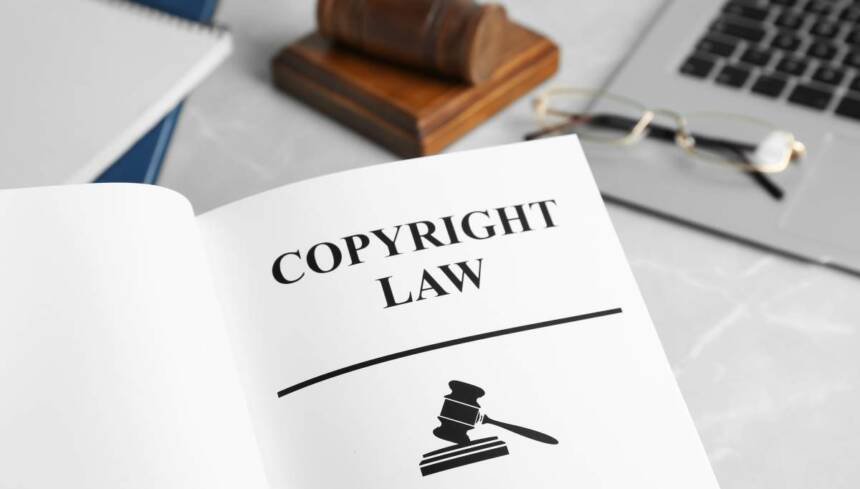Copyright law isn’t always easy to understand, but there are a few basic rules that everyone should know to keep their creative works safe and out of trouble with the law. We’re going to talk about three important copyright rules that everyone, including creators and businesses, should know about.
The Copyright Act of 1976
The Copyright Act of 1976 is the main law in the United States that protects copyright. This extensive law spells out the rights and restrictions that come with copyrighted works, such as literary, dramatic, musical, artistic, and some other intellectual products.
Setting up the “fair use” concept is one of the most important parts of the Copyright Act. Copyrighted material can be used in certain ways without permission from the owner of the copyright. These uses include criticism, analysis, news reporting, teaching, scholarship, research, and so on.
It’s important to remember, though, that the fair use doctrine is subject to a four-factor test. These are the nature and purpose of the use, the amount and importance of the portion used, and how the use affects the copyrighted work’s potential market or value.
“The fair use doctrine is a crucial component of copyright law, as it strikes a balance between protecting the rights of copyright holders and enabling the free flow of information and creative expression,” says Sarah Jeong, a lawyer who wrote “The Internet of Garbage.”
The Digital Millennium Copyright Act (DMCA)
The Digital Millennium Copyright Act (DMCA) is a US copyright law that was passed in 1998. It makes it illegal to make or share technology, gadgets, or services that are meant to get around restrictions on access to copyrighted works. It also sets up safe harbors for online service providers (OSPs) that follow certain rules for taking down material that violates the law from their sites.
One of the most well-known parts of the DMCA is the “notice and takedown” process. This lets people who own copyright ask that websites or other online venues remove content that violates their rights. If a website or service provider gets a legal DMCA takedown notice, they need to remove the content right away or risk losing their safe harbor protection.
An expert in intellectual property law at Stanford Law School named Mark Lemley says, “The DMCA has been very helpful in stopping copyright violations in the digital age, but it does have some critics.” “There have been concerns about the potential for abuse and the chilling effect on free speech.”
Related News: Federal Judge Dismisses Parts of AI Copyright Lawsuit Against Microsoft-Backed OpenAI
The Berne Convention for the Protection of Literary and Artistic Works
The Berne Convention for the Protection of Literary and Artistic Works is an international deal that sets the rules for copyright laws in the countries that have signed it. It was created in 1886 and has been signed by more than 170 countries, including the US.
“Automatic protection” is one of the main ideas behind the Berne Convention. This means that creative works are covered by copyright as soon as they are made, without having to be registered or go through any other steps.
This protection covers works from all member countries, making sure that artists are treated the same no matter where their works come from.
The Berne Convention was very important in making sure that copyright rules around the world are the same and that creative works are protected all over the world, says Peter Jaszi, a law professor at American University and an expert in copyright law. “It’s essential for creators and businesses operating in the global market to understand its provisions.”
Tips and Best Practices:
- Register your copyrights: While copyright protection is automatic, registering your works with the U.S. Copyright Office provides additional legal benefits, such as the ability to sue for statutory damages and recover attorney’s fees in case of infringement.
- Use copyright notices: Clearly mark your creative works with the appropriate copyright notice (©), your name, and the year of publication or creation. This establishes your claim to the work and serves as a deterrent against potential infringers.
- Stay informed about fair use: Educate yourself on the fair use doctrine and consult legal experts if you’re unsure whether your intended use of copyrighted material qualifies as fair use.
- Respect intellectual property rights: When using third-party content, always seek permission or ensure that your use falls within the boundaries of fair use or other exceptions to copyright law.
- Implement robust policies: If you’re a business or organization, establish clear policies and procedures for handling copyrighted materials, including guidelines for obtaining licenses, monitoring content, and responding to infringement claims.
Creators, companies, and individuals can better protect their intellectual property rights and confidently navigate the complex world of copyright law if they understand these three important copyright laws and follow best practices.
Remember that this article is just for general information and shouldn’t be taken as legal advice. If you have specific copyright questions or worries, you should always talk to a qualified lawyer.



